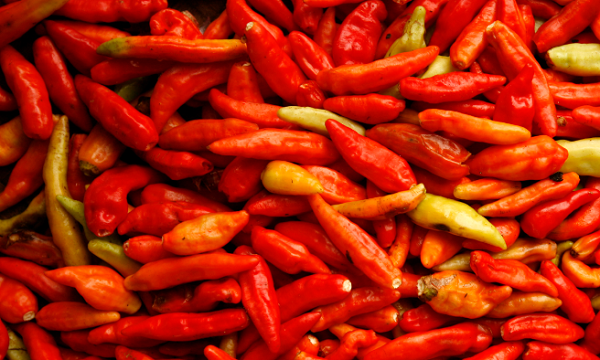How To Live Longer: Eating Hot Red Chili Peppers May Reduce Chances Of Early Death

The secret to living a longer life may just be at your local grocery store. Humans who eat hot chili peppers have lower risks of death and could potentially go on to live longer than those who don’t consume the spicy fruit, according to a CBS News report Monday.
After analyzing more than 16,000 Americans through the National Health and Nutritional Examination Survey, researchers from the Larner College of Medicine at the University of Vermont discovered eating hot red chili peppers was linked to a 13 percent lower risk of death.
Participants were surveyed on their lifestyle, including eating habits, between 1988 and 1994 and were tracked over the course of 18 years. While examining health profiles of participants, researchers found mortality rates were only 21.6 percent for people who ate hot chili peppers. Mortality rates were up 33.6 percent for those who didn’t.
The authors, who published the study in PLoS ONE journal on Jan. 9, were not able to determine how hot peppers helped promote longer lifespans. The researchers theorized that capsaicin, the bioactive ingredient found in spices, also include antimicrobial properties that “may indirectly affect the host by altering the gut microbiota.”
Eating hot red chili peppers is associated with 13 % lower risk of death, says new study https://t.co/tRL7NqtUDt #health #nutrition #food
— Biomedical Journal (@BiomedJ) January 18, 2017
Back in 2015, a study of more than a half million Chinese people also linked reduced risk of death to people who consumed spicy foods six times a week by 14-percent. Conversely, people who ate spicy foods twice a week had a reduced death rate of 10-percent compared to people who regularly consumed milder dishes.
There have been previous studies that have suggested capsaicin in spices has anti-obesity, antioxidant, anti-cancer and anti-inflammation properties. Past researchers have also claimed that capsaicin can provide pain relief and help promote endorphins that can heal aching parts of the body.
© Copyright IBTimes 2025. All rights reserved.






















